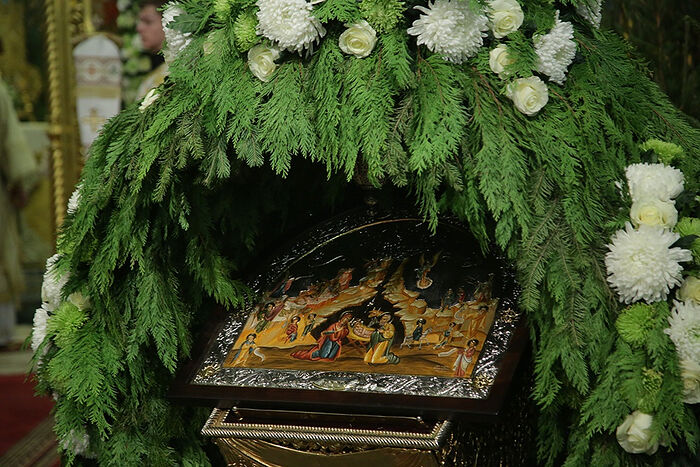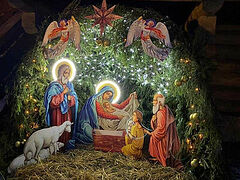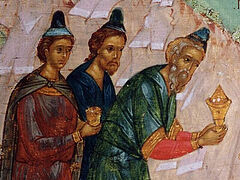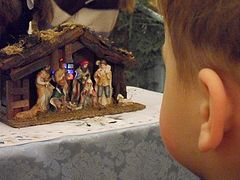Rev. Fr. Daniel Ryabinin, Head of the Missionary Department of the Ekaterinburg Diocese, gives us advice on how our preparations for the feast of the Nativity of Christ can become a source of miracles for us.
“We have only one week left before the miraculous feast of the Christ’s Nativity. For the majority of faithful Christians the period of preparation for the feast has to do with fasting, attending church services, and the works of mercy. But what if this period of fasting went by and, even if we tried to fast limiting ourselves in food, we still couldn’t prepare ourselves for the feast of the Nativity of Christ. On top of that, we spent the end of the calendar year in the bustle and pre-New Year's Eve rush. There is no need to fall into despair and think of ourselves as hardened sinners. We can spend the remaining time to good purpose, so that the joy of Christ's birth can truly comfort our hearts.
The last two Sundays before the feast of the Nativity of Christ are called the Sundays of the Holy Forefathers and the Holy Fathers. The commemoration of the Holy Forefathers is the remembrance of the righteous men from the Old Testament who anticipated the Savior, beginning with Adam himself. Thousands of years separate these people of old from us, yet they are closely related to us. They remind us of our anticipation and faith in the Savior Who has to fulfill the spirit of promise. During the week of the Holy Fathers, the Church particularly commemorates all the relatives in the flesh of our Lord Jesus Christ; we hear at the Liturgy the genealogy of the Savior in the Gospel reading (Matthew 1:1–25). It is really good if we can attend church services on these Sundays and listen attentively to the New Testament readings that will be read there then.
The Eve of Nativity is a special service before the feast of the Nativity on January 6 (in the morning). The concentrated attention of fasting period gradually gives way to joy and exaltation. However, we are also supposed to keep to the strictest fasting regimen on this day.
The Christmas season is always a time of miracles and magic, but it can all come true not just for our little ones. We can also perform miracles—by doing good deeds, and we can still manage to do them before the feast. We’ve got only one more week left and the majority of us are on New Year's holiday break; so, there’s nothing better than to pay a little attention to the deeds of mercy and kindness! We can share the joy of the newborn Christ with those who need our care, and this is truly a miracle! What if these people are among those we already know, like our family members or friends?!
The festive service of the Nativity of Christ always allows us an opportunity to attend a solemn service, but also, last but not least, to receive Holy Communion. Of course, it is a good idea to come to confession the day before and recall what really bothers us in the first place, what are the sins our conscience reproves us of. It is also really good if we sincerely ask for forgiveness from our relatives and friends, as, quite possibly, we have offended them once, either by word or deed, or by our lack of attention. Then, we definitely should sincerely forgive all others. After all, the feast of the Nativity is the celebration of peace as proclaimed by the Heavenly Angels.
Apart from attending services in the remaining time, we can come to church and offer help in decorating. It is always so nice to see how the churches of God are decorated in a special way on particularly solemn feasts. Before the feast of the Nativity of Christ, the churches are decorated with fir branches; Nativity scenes are being installed, and everything is made ready to greet the Divine Child. It is really nice when a small share of our labor benefits and beautifies the place where we will come together to glorify the newly born Christ.
The last week before the feast of the Nativity of Christ is the most important time for us. A mere seven days, but how much we can do then for the feast to become a true celebration of joy, faith and love!
Greetings with the approaching Nativity of Christ!





